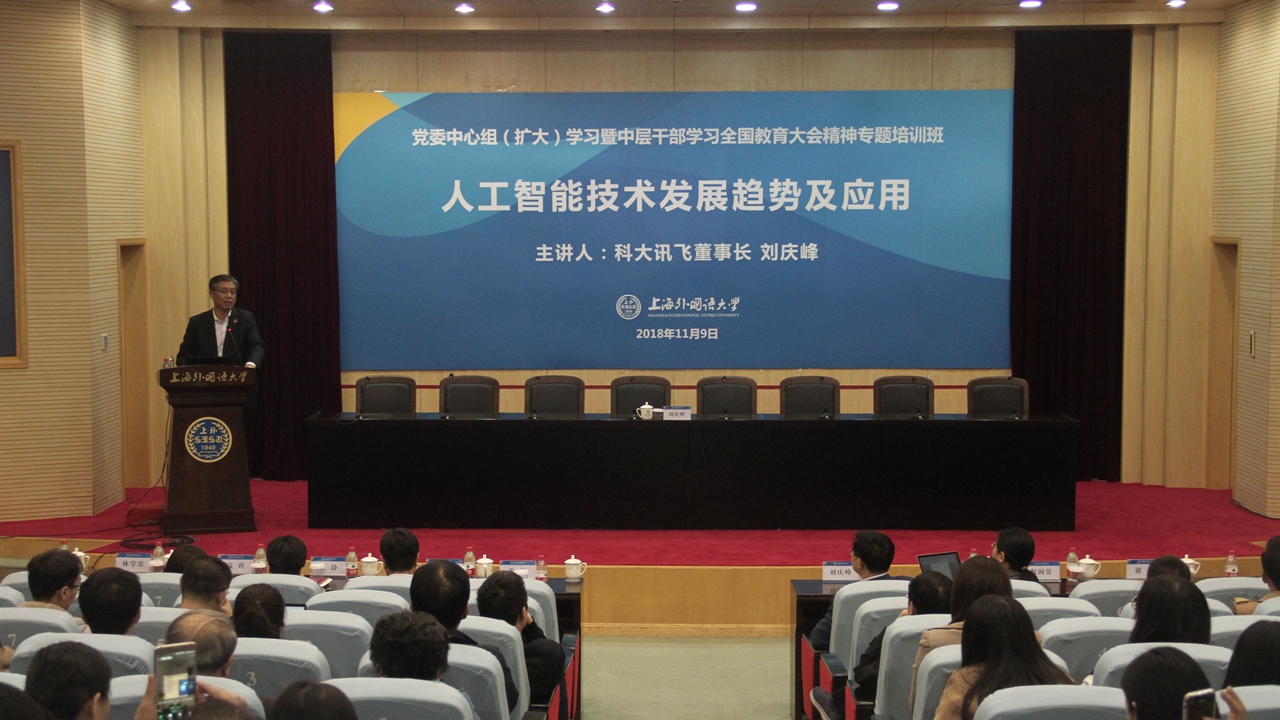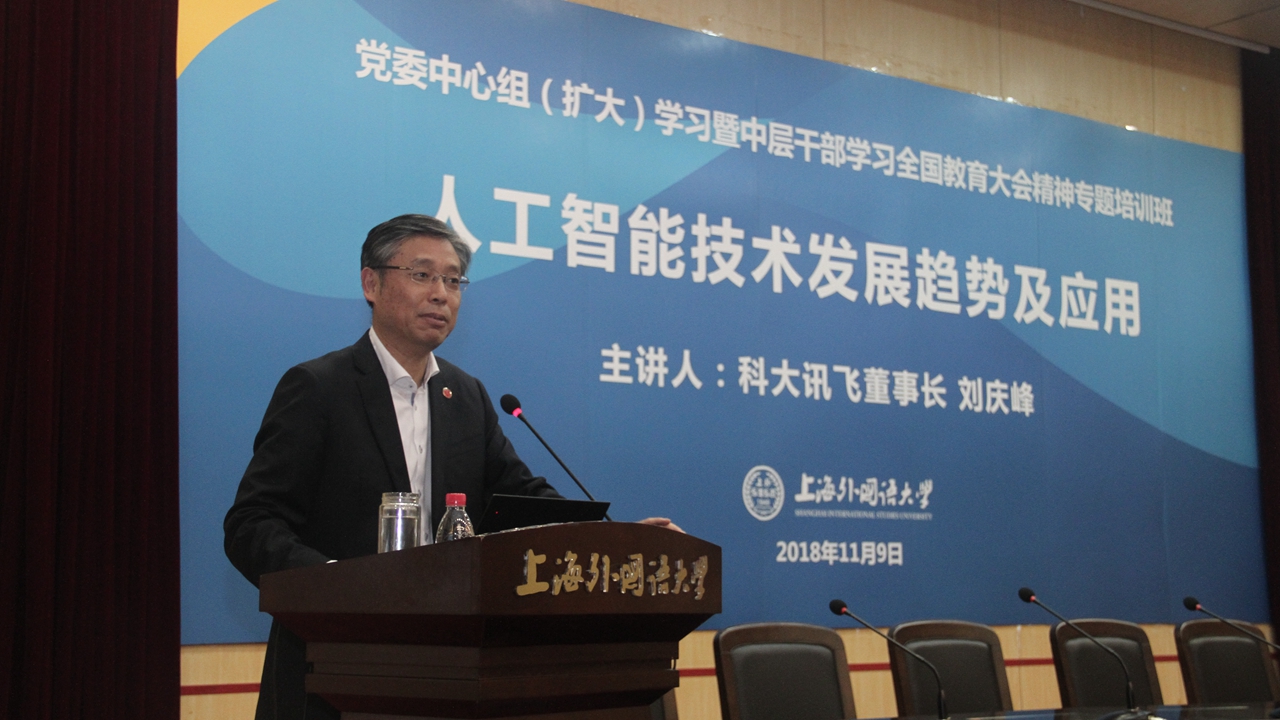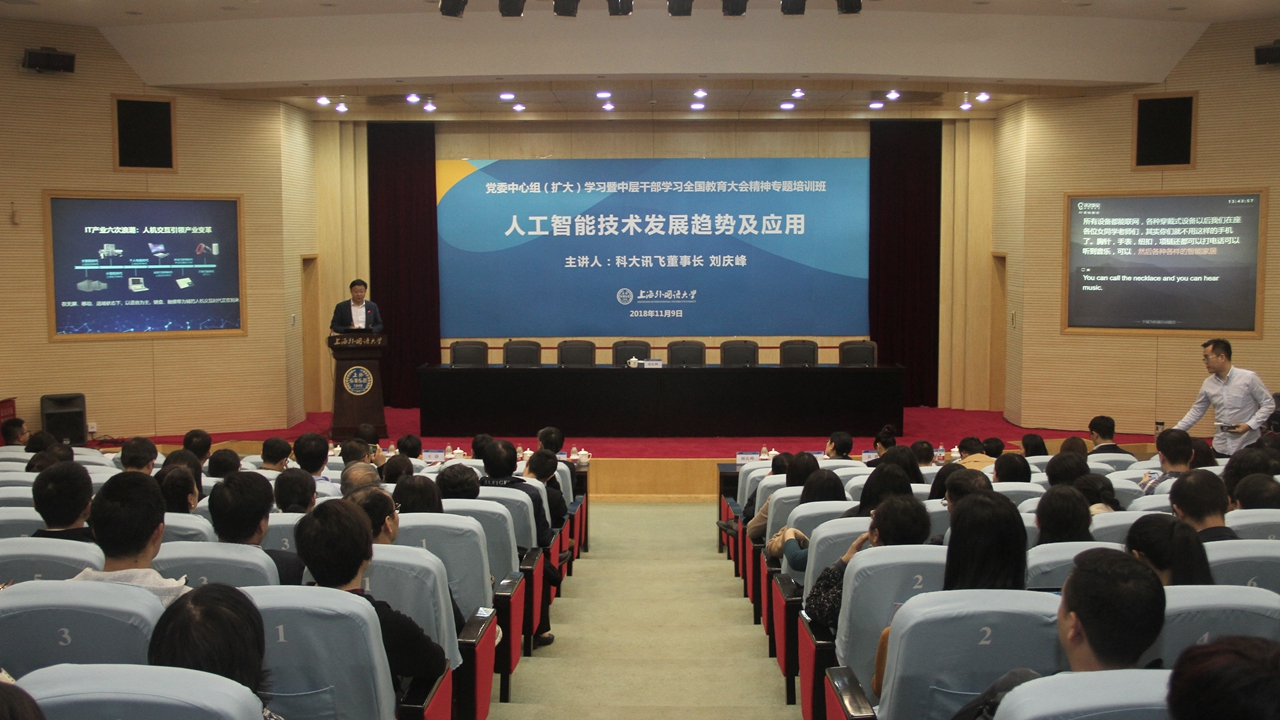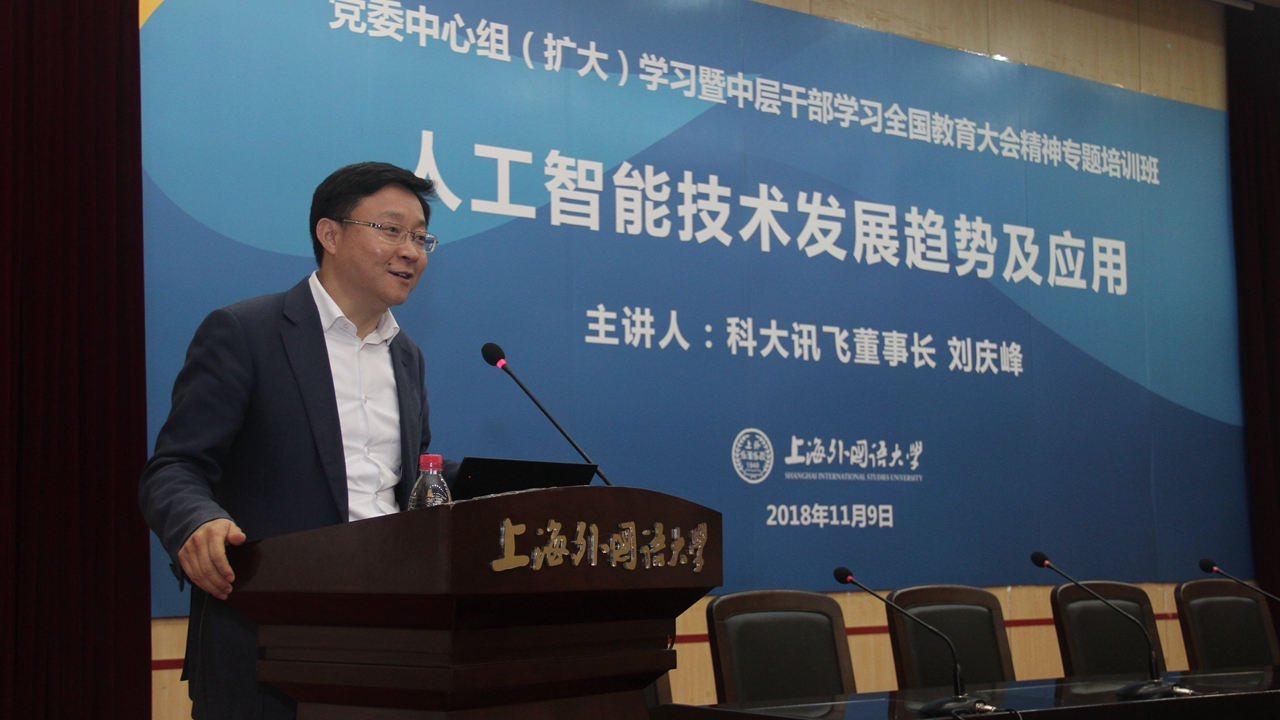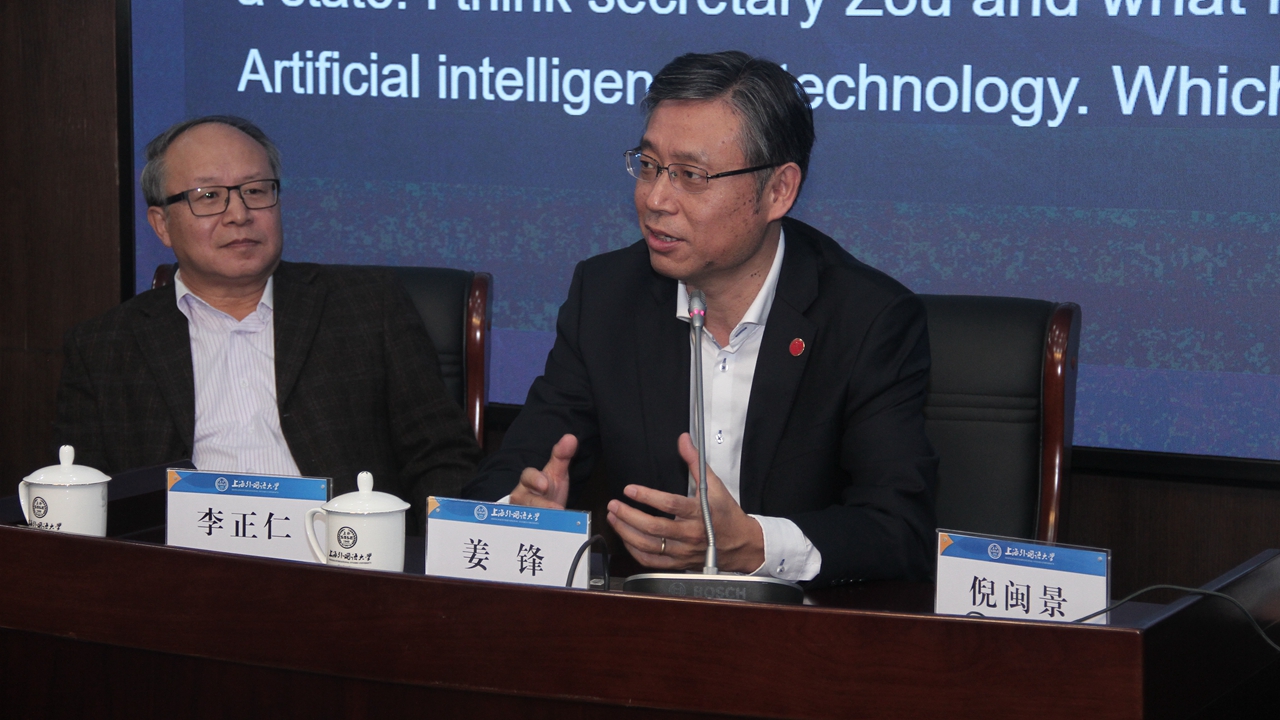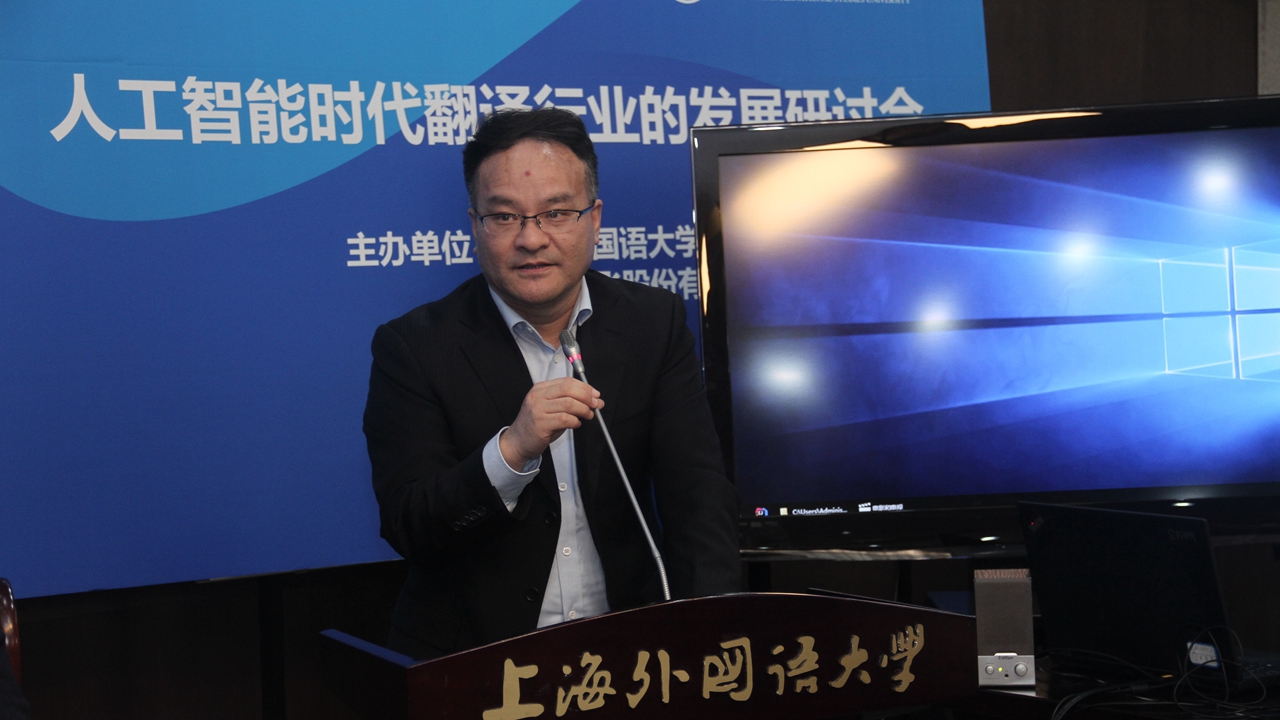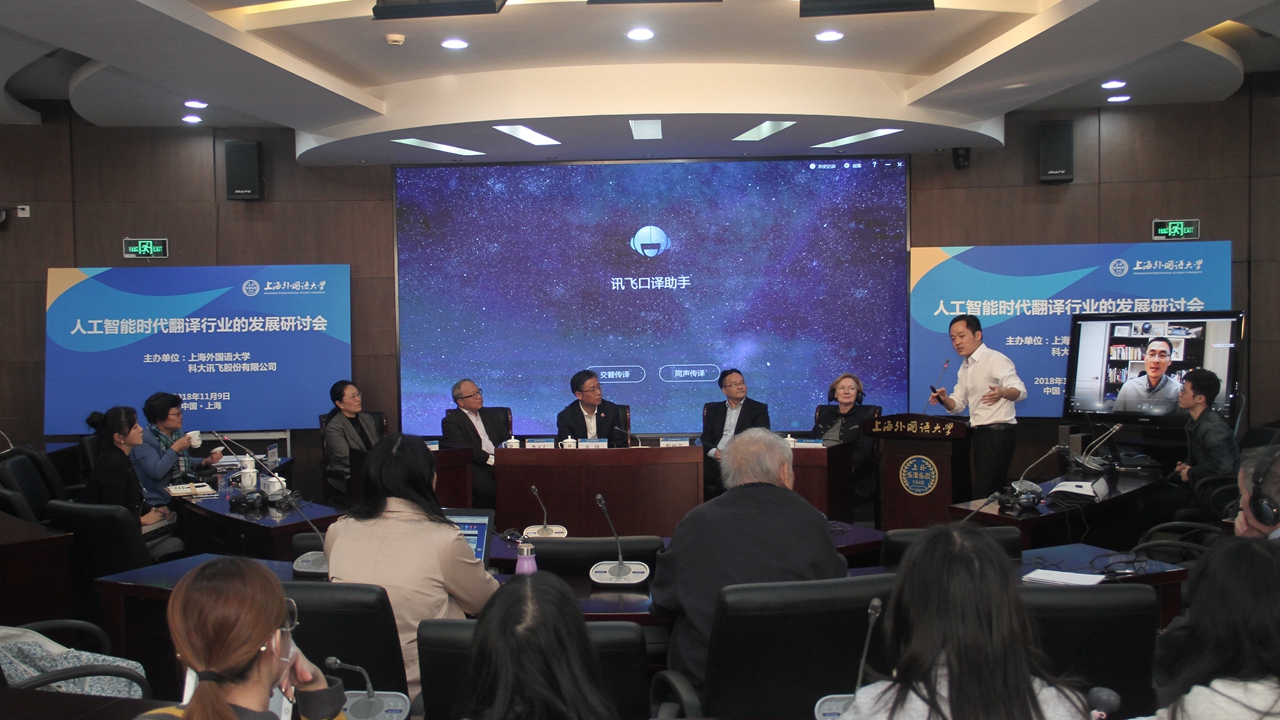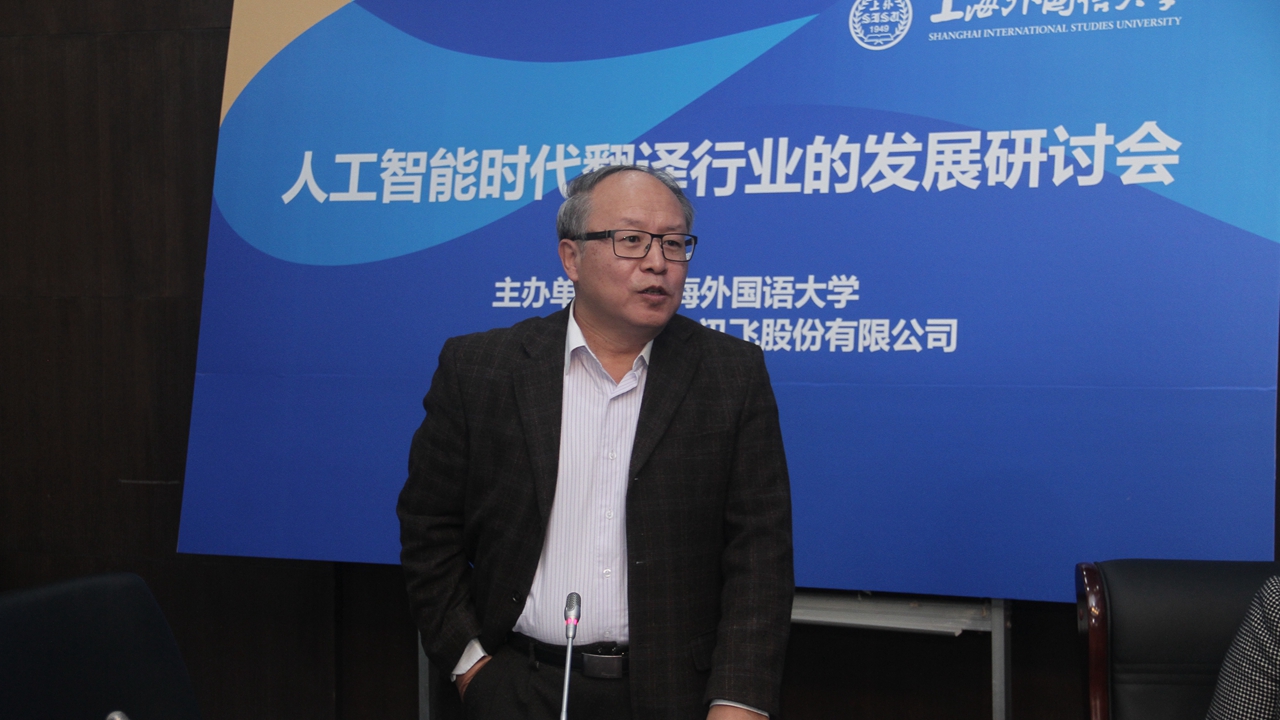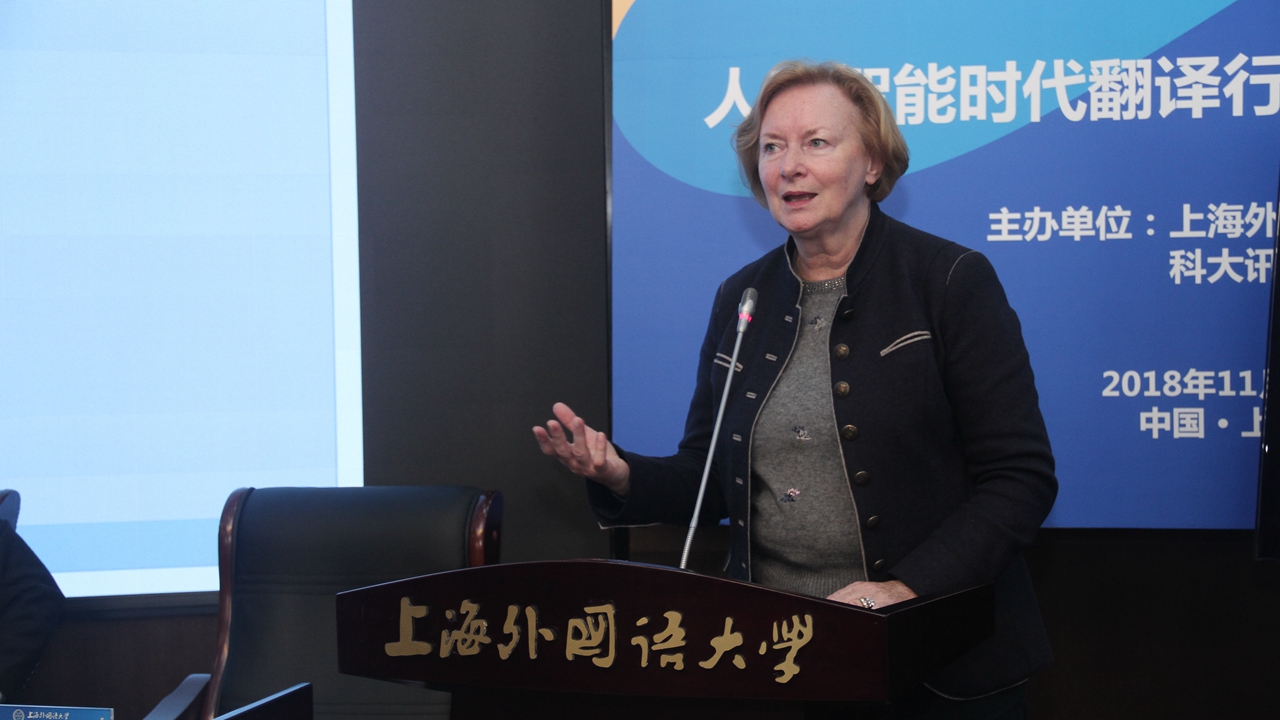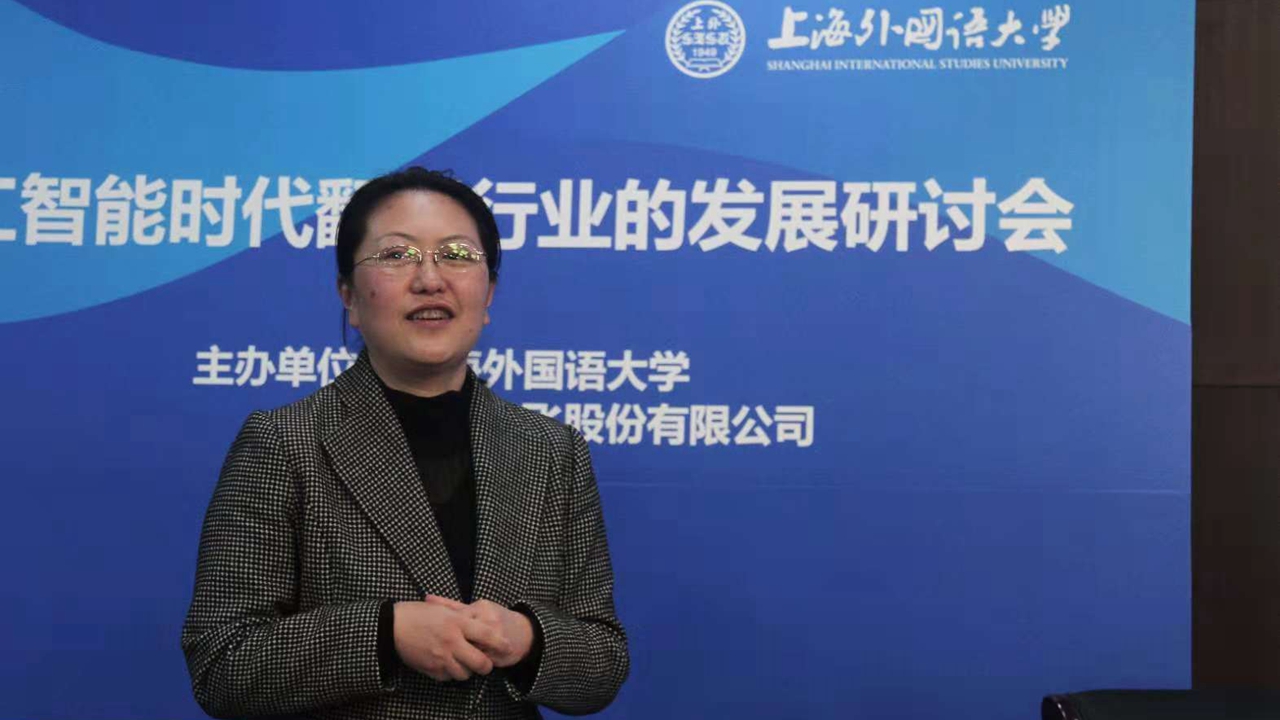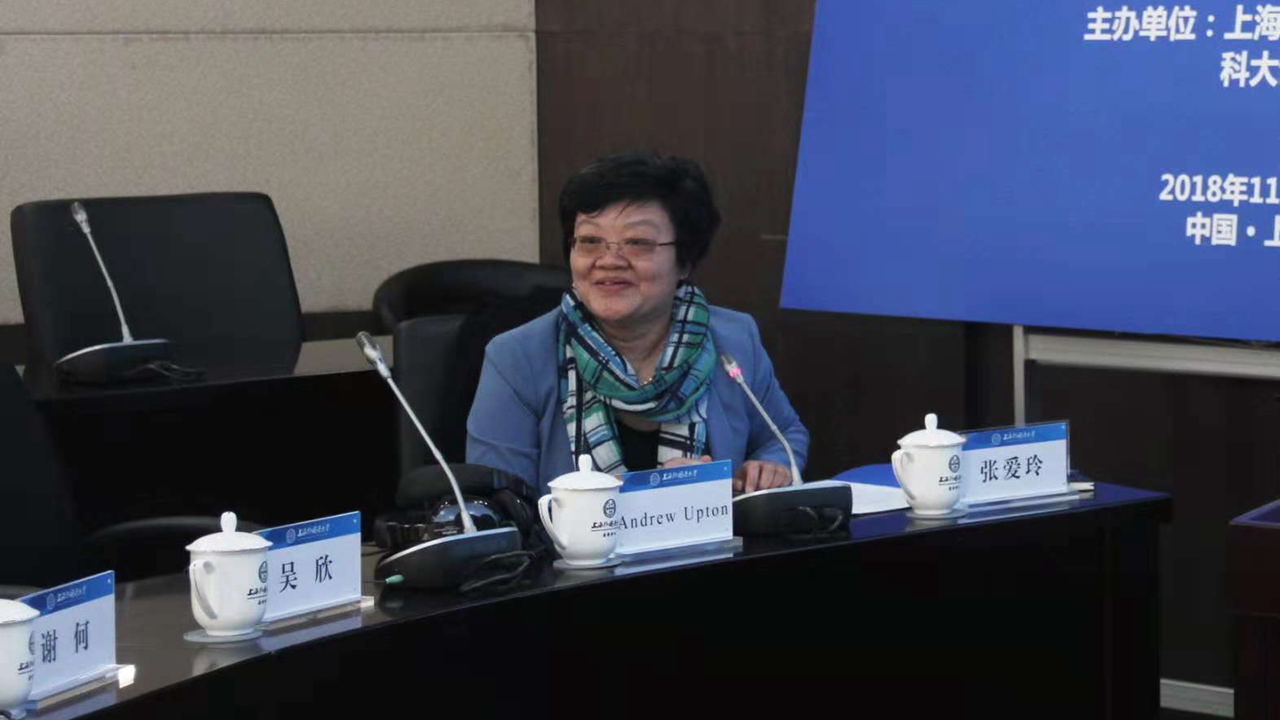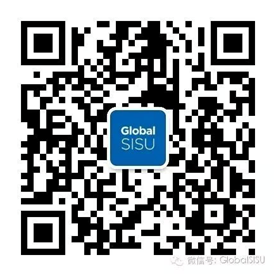O |
n November 9th 2018, Shanghai International Studies University(SISU) held a dialogue themed “Future Development and Application of Artificial Intelligence”.
Human-machine coupling is the key to the application of artificial intelligence. The idea is becoming increasingly accepted across the globe. Liu Qingfeng, chairman of iFLYTEK CO.,LTD.(iFLYTEK), discussed the meanings of human-machine coupling from two angles: machine-assisting-human and human-supporting-machine, and highlighted thatmore is yet to be done to realize human-machine coupling in interpreting.
Liu also introduced the latest progressin improving the core technologies of artificial audio intelligence and other areas of AI, including speech synthesis, speech recognition, oral assessment and language translation. He said that iFLYTEK, on the basis of the development strategy of “Platform Plus Race Track”, has been developing applications for a variety of fields including education, health, politics and law, and consumer products, and especially committed to the innovation of teaching modelsso as to realize its goal of “Aiding Education with Artificial Intelligence and Realizing Dreams through Individualized Teaching”.
On October, 2017, SISU and iFLYTEK announced the establishment of the SISU- iFLYTEK Joint Lab of Smart Interpretation and Translation at the Graduate Institute of Interpreting and Translation(GIIT) of SISU. The launching of the lab is a milestone in the advancement of research and cooperation in machine translation, human-machine coupling and computer-assisted translation.GIIT is the first institute in China to offer MA and PhD programs in translation studies. Awarded the highest ranking by AIIC, the International Association of Conference Interpreters, itis the only Asian institute among the 15 top professional conference interpreting schools in the world.
Since its establishment, the SISU- iFLYTEK Joint Lab has been exploring human-machine coupling technologies to assist the work as well as learning of interpreters. The effort has led to the creation of an app called “Interpreter Assistant”. Fifty-four rounds of experiments were conducted from demand research to software development and from testing to product improvement. Improvements were made based on close to a hundred feedback comments. The final results show a rise of information completeness rate from 88% to 97% and a drop by 20% regarding the pressure caused by workload.
Jiang Feng, SISU University Council Chair,said instead of worrying about AI taking students’ jobs, SISU, a leading university in producing language professionals, should encourage students to use and promote new technologies, and thatit has always been SISU’s aim to cultivate high-end professionals irreplaceable by AI. Jiang believed that the cooperation with iFLYTEK isyet another case of SISU turning challenges into new opportunities.
SISU has long been supportingits staff to engage in world-class cutting-edge research and promotinginterdisciplinary research involving AI. In addition to the lab with iFLYTEK, it has also established a number of other high-end labs including the Key Laboratory of Applied Brain and Cognitive Sciences and the Lab of AI and Data Science.
After the dialogue, SISU and iFLYTEK co-held a seminar on “Development of Translation Industry in AI Era”. Hosted by Zhang Ailing, dean of GIIT, the seminar was attended by Jiang Feng, SISU University Council Chair, Ni Minjing, vice director of Shanghai Municipal Education Commission, Li Zhengren, distinguished professor of SISU and former director of the Interpretation Service at the United Nations Office at Geneva (UNOG), and Wang Wei, vice president of iFLYTEK Consumer BG Department and general manager of Hearing Technology.
With the development of science and technology, machine translation has gained widerimplementation and undeniable importance. Ni Minjing believed that using technologies to assist translation is not only demanded by but also evidenceof social progress. He also pointed out that the well-being of the industry matters not only to those who are working in it but also to the general public, considering people’s reliance on machine translation nowadays. However, he also highlights that machines will always play a supportive role only, because eventually it is the human language, the vehicle of human thoughts and cultures, that they are dealing with.
For humans, language is more than a tool for communication. It is also the embodiment of culture and life. Jiang Feng underscored that language, as the carrier of cultures and traditions, contains significant social values, which are yet to be understood by machines.Regardless of the rapid growth of AI and AI translation, a person’s abilities to decode and process the cultures in languages will always be appreciated. Although science and technology canindeed assist human activities, it is important to remember that, while we are promoting and enjoying the advancement of technology, our eventual goal is to be better than machines.
Li Zhengren said that the development of science and AI translation will undoubtedly help translators make fewer low-level mistakes and improve the quality of translation. However, high-end translators and interpreters, those who have outstanding language skills, in-depth knowledge about cultures and the ability to adapt swiftly and react efficiently, will never be replaced. Therefore, AI technologies will only benefit rather than replace those who use them as tools and stimulate the growth of the translation industry.
According to Wang Wei, language is the symbol of culture and the foundation of a nation. Machine translation will advance and transform the industry, but it will still leave room for the more traditional approaches. Culture and society will generate new concepts and ideas asthey progress, which requires us to accept, study, embrace and adapt to new technology. The application of human-machine coordination and coupling will bring more convenience to our life and work.
Zhang Ailing pointed out that language is developing in a dynamic way. While AI technology appears to the most transformative force at the moment, we should always prepare ourselves foreven newerchallenges. Perhaps, in the not so distant future, certain types of translation work will be handled by machines completely. But the training ofaspiring translators and interpreters will always start with the core skills.
SISU and iFLYTEK will continue playing a leading role in the training of translation professionals and the promotionof AI translation technology. Human-machine coupling is not only a technological trend, but also a solution to the ethical problems of the AI era. Eventually, it is not the machines, but those who can master them, that can replace us.


